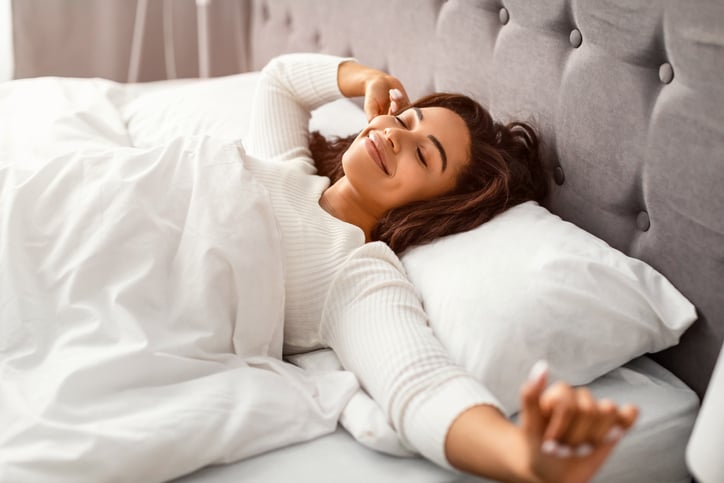Try these sleep tips for better health
Have you decided what your New Year resolutions are yet? Almost everyone can benefit from better sleep. Plus, it may help you maintain other resolutions, especially if they’re related to your health. That’s because sleep quality is a major health booster. Many studies connect sleep to better immune system function and a lower risk of cardiovascular disease.
Therefore, a couple of nights of poor sleep can have a negative effect on your body. For example, a study in Molecular Metabolism found that two nights of partial sleep deficiency impacted gut health. Researchers concluded that more sleep loss could cause long-term problems with digestion. That means effective sleep habits can have a profound ripple effect that offers advantages for years to come. Here are some simple strategies that can help you get a good night’s sleep.
Stick to a schedule
In terms of how long you should sleep, there’s variability from person to person, says Stuart F. Quan, MD, sleep medicine specialist. But the American Academy of Sleep Medicine and the Sleep Research Society recommend at least seven hours of sleep per night. To make sure you’re getting enough hours, a sleep schedule can help you maintain consistency.
Mitigating sleep interruptions may also help you avoid metabolic disorders. A study in Diabetes Care found that participants with sleep disruptions had more prevalence of obesity, high cholesterol, hypertension, and high blood sugar. That was true even if they got the recommended amount of sleep. So, try to stay within the same one-hour timeframe for bedtime. Wake up about the same time each day, too. This can go a long way toward reducing variability.
Get regular exercise
Daily physical activity is strongly associated with better sleep quality. Research shows that sleep and exercise provide substantial positive effects on each other. Sleeping well provides more energy for activity the next day, and in turn, that helps you sleep better overall.
Working out tends to provide almost immediate benefits, according to Johns Hopkins Medicine. So, you may find that just 30 minutes of moderate exercise during the day will help you fall asleep faster at night.
Take breathing breaks
Focusing on stress reduction can have significant effects on better sleep. This tends to work well in a consistent bedtime routine. That’s because strategies like meditation, deep breathing, and gentle yoga can all help lower levels of cortisol. This is the hormone associated with stress and high energy.
In the evening, cortisol typically falls naturally while your sleep hormone, melatonin, surges. But if cortisol remains too high, it disrupts this cycle. So, adopting a deep breathing practice can have a positive effect on sleep quality. Harvard Medical School also notes that it can lower blood pressure and improve immune system function.
Have a bedtime snack
It’s not recommended to have a full meal too close to bedtime. That’s because digesting too much food might interfere with deep sleep. But having a snack with complex carbohydrates can be helpful, according to Johns Hopkins Medicine. That’s because those foods trigger the release of another hormone, serotonin, that’s also related to sleep as well as overall mood. For example, try a small bowl of oatmeal or whole-wheat toast.
Wondering what to skip? High-fat and high-protein foods take hours to digest, as well as aged or processed cheeses. That’s because they contain a naturally occurring compound called tyramine, which can stimulate the brain. Johns Hopkins also suggests avoiding caffeine, alcohol, and spicy foods. All of them can have effects on being able to fall asleep and stay asleep.
Making these kinds of changes should start to improve your sleep within a couple of weeks, if not sooner. However, if you have difficulty falling asleep or wake up several times each night, you may have underlying conditions. So, if you’re experiencing daytime sleepiness or rarely start the day feeling refreshed, you should get checked out. Talk with your healthcare provider about what’s going on, to rule out any issues that might be messing with your sleep.
You can also visit the website for the Division of Sleep and Circadian Rhythm Disorders at Brigham and Women’s Hospital.

